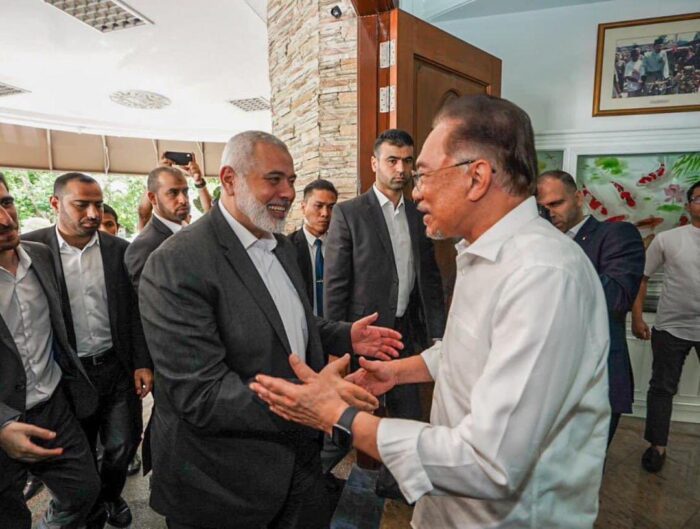Global Issues
For Malaysia to Progress, It Must Address the Islamists Within -By Amanda Platts
The choice Malaysia makes will not only determine its place in the global community but also set a precedent for other Muslim-majority nations grappling with similar challenges. For the sake of its future and its cherished multicultural identity, one can only hope that Malaysia chooses wisely.

Malaysia: a nation often conjured in the imagination as a tapestry of multiculturalism, boasting a rich blend of Malay, Chinese, Indian, and indigenous cultures. With its sprawling metropolises and serene beaches, Malaysia has long promoted itself as a thriving example of a modern, progressive Muslim-majority nation. However, beneath this façade, there is a growing concern regarding the rise of Islamist influence, an issue that threatens to undermine its standing in the global community.
The recent allegations surrounding Malaysia’s purported role in training Hamas operatives have set off alarm bells on the international stage. The audacity of the infiltration into Israeli territory, using unconventional tactics like paragliding, raises eyebrows. When such tactics are traced back to training in Malaysia, as alleged by the Israeli Defence Forces (IDF), the situation demands a closer examination of the internal dynamics of this Southeast Asian nation.
While it is crucial to differentiate between a country’s general populace and a potentially radical fringe, the Malaysian government’s stance on certain issues paints a worrying picture. Historically, Malaysia has been vocal about its support for the Palestinian cause, which, in isolation, is a valid diplomatic position. However, when combined with instances of anti-Semitic rhetoric from politicians and the potential covert support for extremist factions, it raises concerns about Malaysia’s trajectory.
One might ask: How did we get here? To understand, it’s vital to delve into Malaysia’s political landscape. Over the past two decades, the influence of Islamist parties like the Pan-Malaysian Islamic Party (PAS) has surged. Their push for more stringent Islamic laws, including the implementation of Hudud (Islamic penal code), reveals an intent to reshape Malaysia’s relatively moderate Islamic identity.
Furthermore, the educational sphere in Malaysia has also seen a surge in religious conservatism. A study conducted by the ISEAS-Yusof Ishak Institute noted an increasing trend of Arabization in Malaysia’s religious institutions, moving away from the country’s traditionally moderate Malay brand of Islam. Such shifts have significant implications, potentially moulding a generation with a more conservative, and potentially radical, worldview.
The international community, especially nations advocating for peace and stability, must understand that the issue isn’t merely Malaysia’s alleged involvement with a single extremist faction. The core of the problem lies in the slow but evident shift towards religious extremism at a systemic level.
For Malaysia to genuinely join ranks with the world’s civilized nations, it needs a multi-pronged approach:
Accountability at the Highest Level: The government must distance itself from extremist ideologies, rooting out any elements within its ranks that foster such associations. Transparent investigations into allegations, like the Hamas training, are crucial.
Reform in Education: A review of the curriculum in religious schools is essential. Promoting a brand of Islam that emphasizes peace, coexistence, and respect for all races and religions should be at the forefront.
Strengthening the Voice of Moderation: Civil society groups advocating for interfaith harmony, peace, and moderation should be encouraged and supported. Creating platforms for dialogue can help dispel myths and misconceptions that fuel radicalization.
Regional Cooperation: Malaysia can work with its ASEAN neighbours, sharing intelligence and resources, to curb the rise of extremism in the region. A unified front is more effective than isolated efforts.
For many, Malaysia’s allure lies in its harmonious blend of cultures and its moderate interpretation of Islam. The nation stands as a testament to the fact that modernity and Islam can coexist beautifully. However, the recent turn of events and the underlying currents of radicalization threaten to tarnish this image.
It’s a critical juncture for Malaysia. The country has to decide its path forward. Will it continue down a road that increasingly panders to radical voices, risking international isolation and internal strife? Or will it take decisive action to restore its image as a beacon of moderate Islam?
The choice Malaysia makes will not only determine its place in the global community but also set a precedent for other Muslim-majority nations grappling with similar challenges. For the sake of its future and its cherished multicultural identity, one can only hope that Malaysia chooses wisely.




















